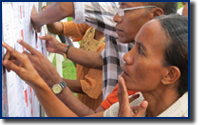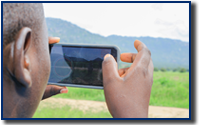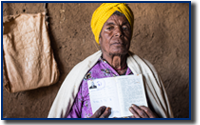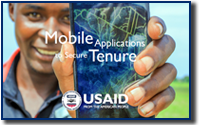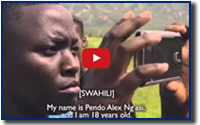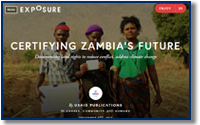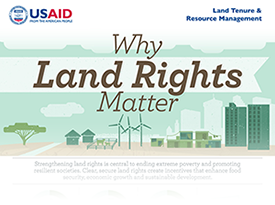Join experts from USAID, Illovo Sugar Ltd., International City/County Management Association, the Millennium Challenge Corporation, Namati, and the World Bank for an online discussion about the meaning and applications of the concept “legitimate land rights.”
Moderator
Richard Gaynor, Millennium Challenge Corporation
Panel
Brian Keane, USAID
Kate Mathias, Illovo Sugar Ltd.
David Grossman, International City/County Management Association
Jonathan Lindsay, World Bank
The Voluntary Guidelines for the Responsible Governance of Tenure of Land, Fisheries and Forests in the Context of National Food Security (VGGTs), unanimously adopted by the Committee on World Food Security (CFS) in 2012, are among the most significant global land agreements to date, providing a framework that governments, civil society, and the private sector can utilize to create policies and programs in support of land tenure, natural resources, and sustainable urbanization.
Throughout the VGGTs, the term “legitimate tenure rights” is used to describe a range of rights without defining what those rights actually are or what they mean in different contexts. The notion of legitimate land rights takes on a variety of legal and policy implications, allowing for context-specific applications that potentially could provide greater tenure security for people living in informal, undocumented, and customary systems.
This panel event will explore the complexities of this concept. We will look at how the meaning and application of legitimate may vary in urban and rural settings, as well as how ideas of legitimacy can be used to serve different populations, such as indigenous people, women, and slum dwellers. And we will examine the challenges development professionals, private sector actors, and governments face in securing legitimate land rights through policies and programs.
This event is over, but you can watch the recording here.


